6. Crimes and Misdemeanors
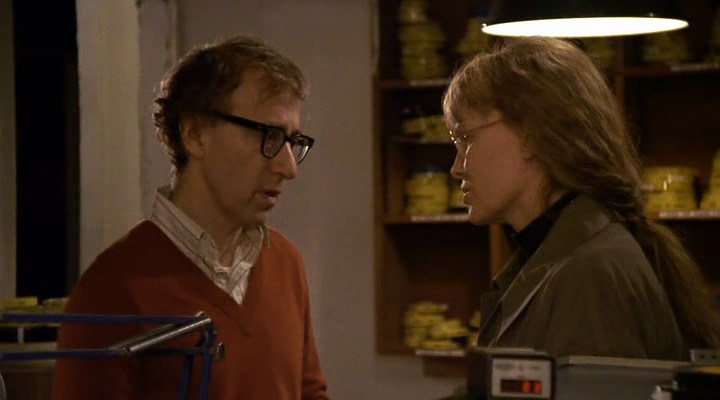
This movie deals with two issues, showing two stories in parallel.
In the first story, there’s the issue of having to face the consequences of your actions. Judah (Martin Landau) is having an affair with a flight attendant, Dolores (Anjelica Houston). Dolores believes that Judah truly loves her, but when she realizes that he never saw their relationship as anything more than just an affair, she threatens to expose him to his wife, unless he breaks his marriage with her.
Facing such a serious conundrum, Judah is incapable to doing the right thing, which would be taking responsibility for his actions, and confessing the affair to his wife, while apologizing to Dolores. Instead, he recruits his brother, Jack (Jerry Orbach), who has dealings with the underworld, to get rid of Dolores. Following that, just like Raskolnikov, Judah is overburdened by guilt, unable to keep living his life as he always had. It doesn’t seem that the title “Crimes and …” was chosen at random.
The second story is fairly similar to Whatever Works, but instead of the super-genius trying to deal with average people, here we have a regular, educated, smart person, Clifford (Woody Allen) being forced to deal with a pompous imbecile, Lester (Alan Alda), who, life brings it in such way, becomes Clifford’s boss. As opposed to Whatever Works, whose main character is not easy to (really) identify with, in this story, the viewer is very likely to identify with Clifford.
There are thousands, possibly millions, of humans being forced, not by actual force, but by life, to deal with, or obey, or work for actual imbeciles, and one requires a lot of self discipline in order not to descend into a spiral of hating one’s life and self. The best way to achieve that, Allen suggests, is humor. Which is probably why this branch of the movie is among Allen’s funniest.
7. Husbands and Wives
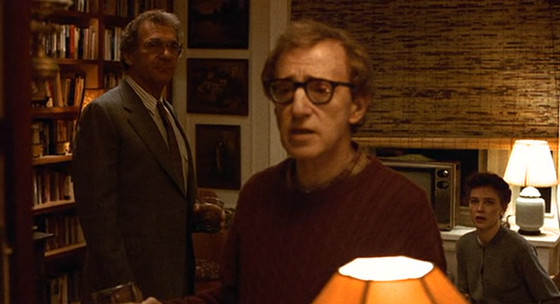
One of the most difficult things in life is marriage. Not talking about the actual ceremony itself, nor the steps leading up to it. After you are married, considering that you got married for real, “till death do you part”, how do you keep your marriage strong? How to you manage to spend the rest of your life together with another human being, without your life or your spouse’s life becoming miserable?
Husbands and Wives take on the subject of marriage, looking at some of the most common problems a married couple can encounter. All kinds of shenanigans ensue, in typical Woody Allen fashion, involving couples and affairs. But underneath all that, there’s the question: Should these people have been married in the first place? Did they think about it properly beforehand?
Are you, or do you want to get married? If so, why? Do you fully understand what it means to share your life with someone, forever? So many people rush to get married, just cause they feel some kind of early passion. Lots of them rush to have kids too. It’s different to fall in love with someone, and it’s a whole different story to sexually desire someone. Marrying someone requires a lot of thinking, a lot of introspection, and a hell of a lot of self-questioning; especially questions that you may not like the answers.
8. Another Woman
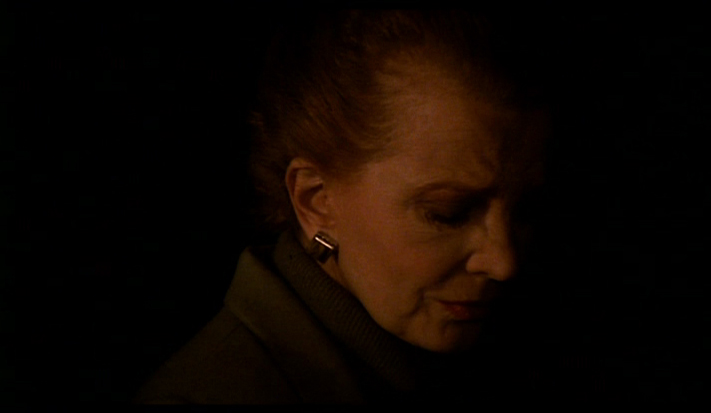
A woman growing up carries the extra burden of an important choice: Career or Family? This may sound slightly anachronistic written in 2020, but it is still a matter that weighs down a lot of women, especially women in countries that may not belong in the developing world, but are still behind the developed world in such matters, both law-wise and society-wise.
In Another Woman, one of his non-funny movies, Woody Allen follows Marion (Gena Rowlands), a 50 year old woman professor of philosophy, who just begins her sabbatical in order to write her book. She rents an apartment especially for that reason, so that she can be isolated and focused, but it turns out that the next door apartment can be overheard through the vents. That apartment is a psychiatrist’s office, and Marion accidentally overhears Hope (Mia Farrow), a pregnant woman whose pregnancy has made her anxious and doubtful about her life. Marion keeps overhearing Hope’s sessions and starts wondering whether her choices in life were correct.
Regret is the theme here, but especially a woman’s regret regarding the course of life she chose. Whichever choice a woman makes, how does she know she will not regret it? There is no trial version of life; your choices stick with you, and a dilemma of such weight is not an easy one to handle.
9. September
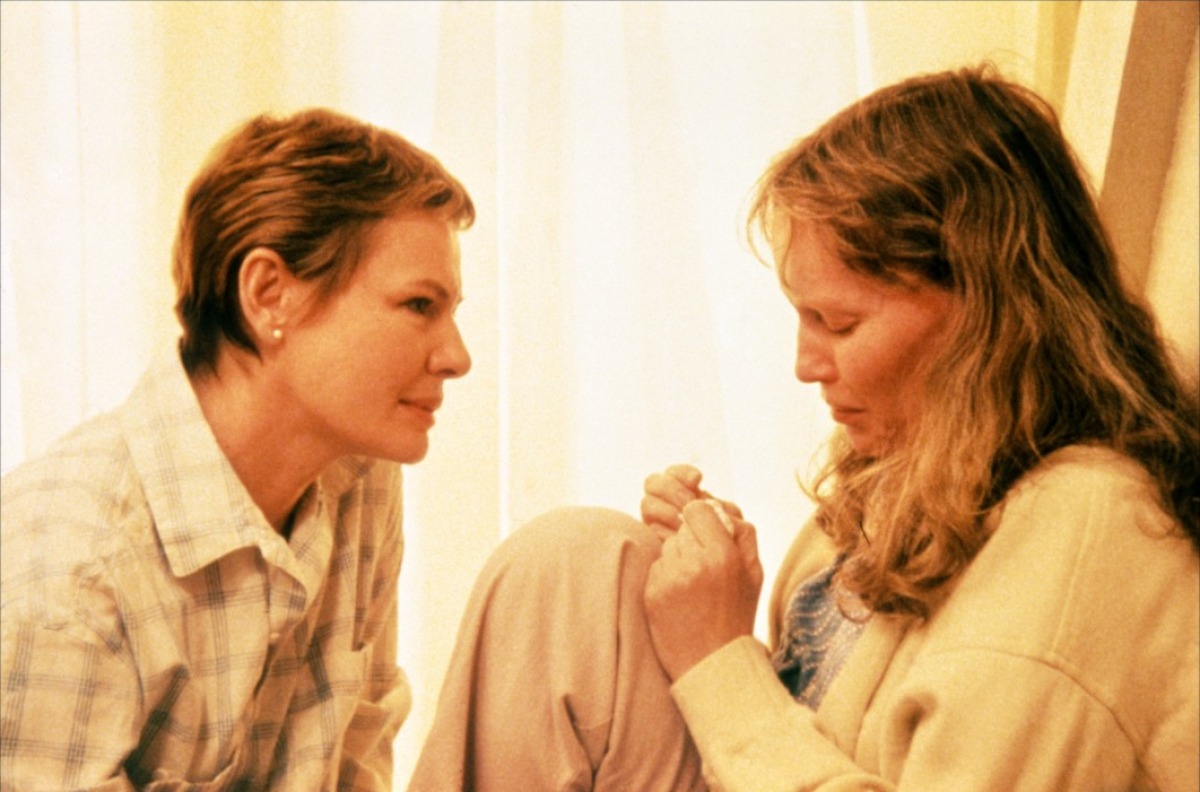
The dilemma whether to become a parent or not may be there for some, or it may not for others. But what about the person who has no say on the matter, even though the matter concerns them exclusively, i.e. the child? Is the woman capable of being emotionally there, if she brings a child into the world? Does she even know if she is?
Α mother, Diane (Elaine Stritch), and her daughter, Lane (Mia Farrow), are staying with some friends at their country house in Vermont. Different romance stories unfold, but the central point of the film is Lane’s broken psyche, a direct consequence of Diane’s relationship with her. Diane was, is, and stays oblivious to the harm she inflicts upon her daughter by being the emotional absentee and egocentric person that she is.
It turns out that what one parent-to-be (either biological or foster) needs to consider is not only their own regrets, but also the possible regrets of the child. Are you, the parent, capable of providing what your child, who is an individual with individual needs, will need, not only throughout childhood, but throughout all their life? It is a thought that can, and probably should, be an even heavier burden on a prospect parent’s mind, than what the effect of such a decision on themselves would be.
10. Interiors
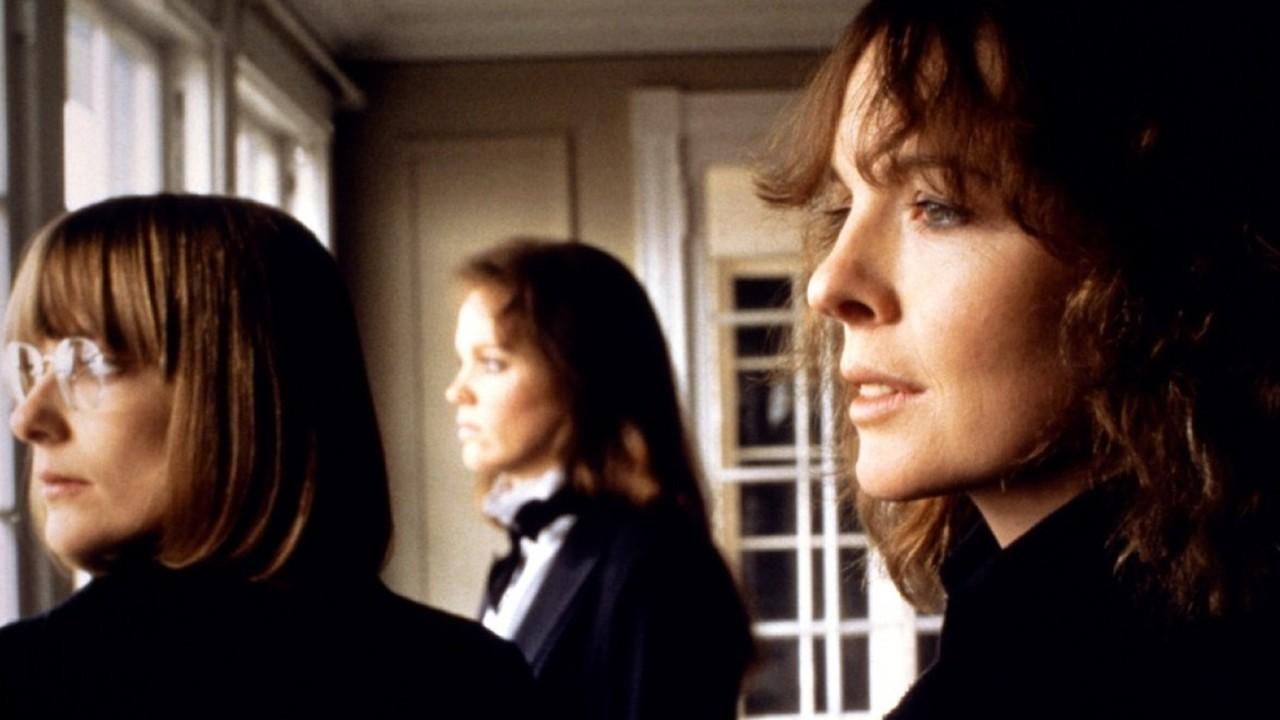
Woody Allen’s movies are generally light and funny on the surface, and although he has made a few that are on the more overall serious side, none is as doom and gloom as Interiors.
In Interiors, Eve (Geraldine Page) and Arthur (E.G. Marshall) are married with 3 daughters. Although Eve and Arthur are in their 60s, Arthur suddenly decides to end their marriage, leaving to go on vacation by himself in Greece. Eve, already suffering from depression, has built all her life around Arthur, and his decision throws her in a downward spiral, which especially impacts their most devoted daughter, Joey (Mary Beth Hurt). And while Eve puts her life on pause, hoping and waiting for Arthur to regret his decision, Arthur comes back from Greece with a new girlfriend, whom he soon marries.
If the rest of the movies on this list can leave you depressed after watching them and doing some serious thinking, Interiors takes the cake on not needing the thinking part at all. It pulls no punches portraying Eve’s inability to function in life without the person to whom she has attached her whole being, while her depression makes matters worse – and Page’s sublime acting only amplifies the overall feeling of despondency. This is a film that flat out tells the viewers to be aware not to build their lives around any other person, as nobody is guaranteed to be there forever.